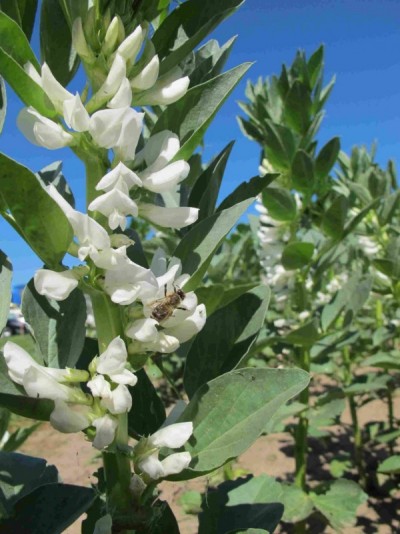FIELD BEAN
The field Bean is a valuable fodder plant of the Fabaceae family grown as a main crop for seed yield. It has the highest yielding potential of all Fabaceae crops. Average seed yields in typical production conditions are at 3 t/ ha, and in particularly favorable conditions they reach 4-5t/ha. The seeds of field beans contain 28-30% of total protein of high biological value. In terms of its amino-acid composition, field bean protein compensates very well with proteins present in ground cereals, therefore ground field bean is a very suitable high-protein component for the production of concentrates. This holds particularly true for the new low-tannin varieties – their seed can play a significantly higher part in feed mixtures. The field bean is a particularly valuable fore-crop to cereals, especially winter wheat. Field been is a phytosanitary and phytomeliorating crop. After harvest, it leaves behind 4-5 tons of organic matter per ha, containing ca. 70kg of nitrogen, 20kg of phosphorus, and 40kg of potassium.
Please take the time to look at the descriptions of particular varieties.







